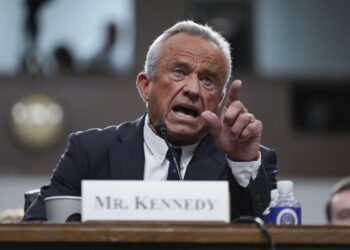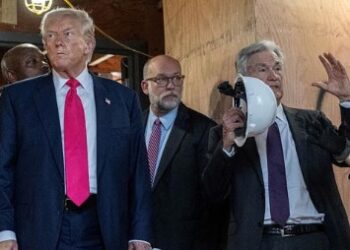BLUF Report: Steve Bannon’s Call to Arms Against Wasteful Spending
NDAA: A Controversial Cornerstone of U.S. Defense
The National Defense Authorization Act (NDAA) is one of the most significant pieces of legislation in American governance. It allocates funding for the Department of Defense and sets policies that shape U.S. military strategy. Since its inception in 1961, the NDAA has rarely faced vetoes—a testament to its bipartisan appeal. However, it has also become a vehicle for wasteful spending and political maneuvering.
In 2021, then-President Donald Trump vetoed the NDAA, citing its failure to address critical issues such as Section 230 protections and provisions that renamed military bases. Despite his objections, Congress overrode his veto, showcasing how deeply entrenched pork-barrel spending is in this legislation. Every member seemed to have a “goodie” in the bill, which fueled its passage.
Steve Bannon talked about the current conflict with the NDAA on Friday’s WarRoom.
Bannon’s Critique of the NDAA
Bannon, a prominent political strategist, has made no secret of his disdain for how the NDAA is structured and executed. During a recent appearance, he criticized the act as emblematic of a broken system. "The National Defense Authorization Act is perpetuating flawed priorities,” he said, warning that its misuse undermines the country’s long-term security.
Bannon emphasized the need for a fundamental overhaul of U.S. defense spending. "We have to pivot to confront China,” he argued, highlighting the urgency of focusing on America’s most pressing geopolitical threat. According to Bannon, the current NDAA channels funds into outdated programs while ignoring essential preparations for emerging challenges.
The NDAA and Out-of-Control Spending
At its core, the NDAA reflects a larger issue: Congress’s inability to rein in spending. Over the years, lawmakers have turned the act into a treasure trove of earmarks and pet projects, diverting resources from urgent defense needs. The unchecked flow of money has led to inefficiencies and missed opportunities to modernize the military.
Bannon pointed out these inefficiencies, likening the establishment’s approach to an entrenched bureaucracy. "The priorities are wrong,” he said. His criticism underscores the necessity for a strategic reevaluation of how taxpayer dollars are spent in the name of national defense.
Why the NDAA Matters
The NDAA’s significance goes beyond defense. It is a bellwether for how Congress handles large-scale appropriations. Reforming it would set a precedent for tackling wasteful spending across the board. As Bannon highlighted, addressing these issues isn’t just about fiscal responsibility; it’s about ensuring America’s ability to face future threats.
The Path Forward
Bannon’s remarks come at a time when populist-nationalist voices are gaining traction. He advocates for legislative strategies like reconciliation to push through reforms. By focusing on real threats—such as China and border security—and cutting extraneous spending, the NDAA can be transformed from a symbol of inefficiency to a tool of strength.
His message is clear: "This is not just about dollars. This is about the future of our nation.” Bannon’s critique invites a broader discussion about how the NDAA can evolve to meet the demands of a changing world while staying true to its purpose.
Conclusion
Steve Bannon’s fiery critique of the NDAA is a rallying cry for reform. His focus on cutting waste and confronting geopolitical realities challenges Congress to rethink its approach. As debates over the NDAA continue, his vision provides a roadmap for a more efficient and focused defense policy—one that prioritizes America’s security and economic future over political gamesmanship.
To hear more from Bannon on this topic, watch this WarRoom segment:
"They’re Out To Stop The DOGE Effort”: Steve Bannon On The NDAA




